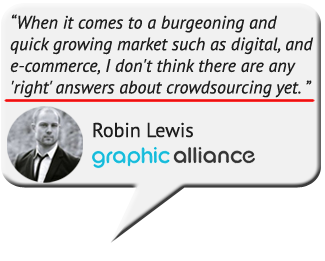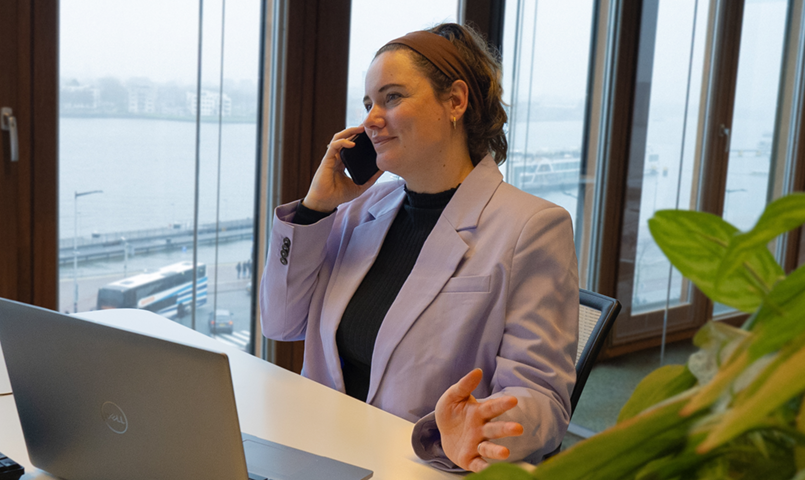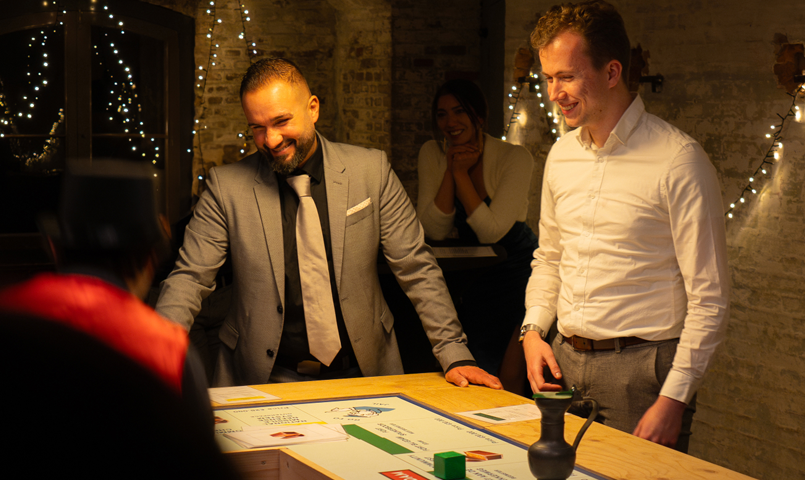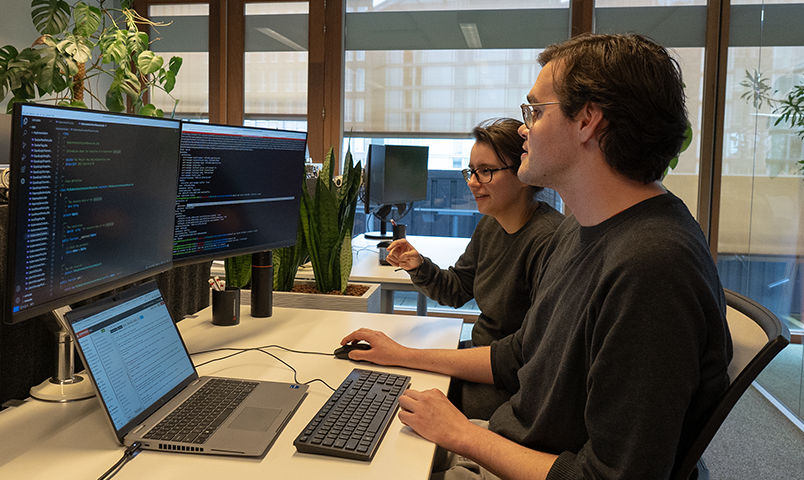Five reasons agencies should collaborate
In one of our earlier posts in this series, we pointed out the importance of collaboration. Agencies used to thrive by a full-service, one-stop shop approach of their clients. Technological developments, competition from lean start-ups and economic decline have forced businesses in any industry to rethink their right of existence. Jacks of all trades will never excel at everything they do and therefore lack competitive edge.

Marketing and advertising agencies are no different and need to reshape and diversify. To ensure continuity, collaborating with others could prove to be inevitable. Pablo Jonas, COO for Brussels-based communication agency Opus, shares: "Agencies are required to do more work with less people and the number of agencies is ever-growing. Success simply does not depend on creativity only anymore, it also about smart tools, finding the right person for the job and sustainable partnerships."
One of the five characteristics of highly successful agencies is collaboration. Collaboration offers massive opportunities for agencies. Five of the main advantages for agencies to collaborate with others are:
- Stand out by specialisation
- Increase profitability by reducing cost and overhead
- Offer a perfect mix of specialists every time
- Keep your work fresh
- Expand your reach

1. Stand out by specialisation
Brands look for best-in-class service providers. Full-service agencies without a specialisation are outrun by agencies that have already found their super power. In order to offer brands a one-stop shop, agencies need to collaborate. A focus on your core activities and collaboration with other specialists are vital for your agency's future. Just like in professional sports, it is nearly impossible to be the best in multiple disciplines. Brand owners need to justify working with agencies. Therefore, not only should you be able to convince clients of your added value, your client needs to be able to sell your strengths internally as well.
So better keep it simple.
The competitive paradox
At first glance, it may seem paradoxical that in order to survive an agency should work together with competitors. But when you look closer, you will find that agencies quite often don't compete at all. Quite contrary, when agencies are introduced to each other, they find out that there is a strong synergy between their services. It happens at every partner event we organize and on every trade show we attend with our partners. Agency representatives don't speak initially, but when the first representative talks about his specialties and challenges, there's always another agency who either has limitations in that specific field or on the flipside is specialized in that.
For Sascha Dobbelaere, managing partner of S-Company, specialising in one area was an easy decision: "Whatever project we do, it should be something we are really good at. Our clients deserve that. It makes sense that someone who is developing Drupal sites all day, becomes really good at this. For us, e-commerce is a specialty. We wake up with it and go to bed with it. Clients and other agencies know us for this, creating word of mouth for our agency."
Be it creative, strategic or technical, focus makes your agency end on top.
2. Increase profitability by reducing cost and overhead
In today's Uberized service economy, more and more companies act as some sort of agency. Media companies create ads, content agencies generate sales-ready leads, consulting firms offer implementation and digital is the new full service.In order to improve company results, some agencies replace senior staff with juniors and try to get rid of overhead (like account management and project management). Eventually, this tactic is self-destructive for an agency.
The only way to be agile and offer full-service is to collaborate with specialists. Agencies with a strong network have been able to reduce employee costs and overhead, and proved to be more agile and adaptive to change.
3. Offer a perfect mix of specialists every time
A focus on a core specialism, creates space for collaboration with other agencies. Anyone could agree that design is a different specialty than development and a good copy writer can add value to a strong content marketing strategy.
If an agency is built from a strong core and a flexible layer of specialists, they don't need to depend on their own creative staff alone and can create true client-centric teams. An example is Bristol-based Thinkable Digital. The agency itself consists of a strong fundament of seasoned strategists, and a flexible layer of graphic designers, programmers, SEO, PPC and different experts in those individual areas. A custom team is formed for any individual client case, ensuring the best possible people for every job.
When you have the specialist for any job you will get stickier clients.
4. Keep your concepts fresh
When you work with the same people on the same type of clients, tunnel vision is imminent. By hand-picking the specialists per project, you ensure the best possible result for your client.
You can choose to work together with industry professionals from your own network, or consult online portfolio sites like Dribbble and Behance, but you could also use the power of the crowd. What Uber did for the cab industry, companies like Zooppa, Poptent and Tongal are increasingly doing to advertising. Concepts created by ordinary people now air on the Super Bowl.
London based Graphic Alliance has been working closely together with partners for years, and follows developments in the field of crowdsourcing with interest. Robin Lewis, account manager, shares: "When it comes to a burgeoning and quick growing market such as digital, and e-commerce, I don't think there are any 'right' answers about crowdsourcing yet. Everything moves so quickly and we're still like a child in space, knowing what we can see, but not entirely sure what's around the corner. There are patterns that relate to verticals, and trends that one can follow, but there are always exceptions to the rules, and unforeseen surprises, whether it's customer behaviour, or something along the lines of MP3's blowing other music formats out of the water."

The outcome might seem uncertain at first and most likely crowd sourcing won't be the answer to all marketing needs, but it definitely gives access to an endless pool of talented individuals who might just have that one groundbreaking idea.
5. Expand your reach
Building a successful international business takes years and is usually high maintenance. Collaborating with other agencies can give you an international reach, while keeping a firm grip on your local market. Jeffrey Peel, ceo of Belfast based Quadriga Consulting adds: 'Since our founding over 12 years ago we have been set up as a virtual agency. We have local offices in several cities in the UK, Europe and the US. On a daily basis our associates run their own projects, but for international clients, we work closely together."
A network of international partners makes geographical boundaries disappear and allows you to manage global projects that were far out of reach before.
Make your performance count
Just like with cars, it is performance that counts, not size. Collaborating with other specialists is essential to remain successful for the long term. Find your unique power and surround yourself with other winners to increase profitability. Team up to compose the perfect project team, be it for a local hero or a global leader, and create the most refreshing work ever.


















